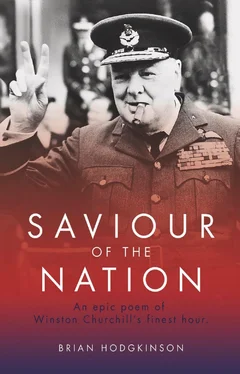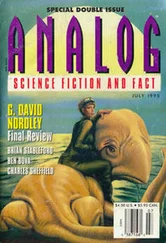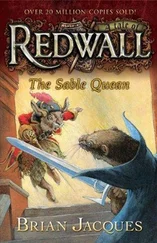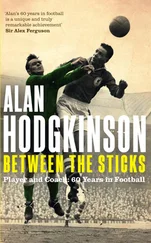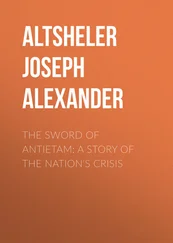And worst of all, the line of forts is lost –
What is to stop the German conqueror?
This is the grievous consequence of years
Of futile good intentions and neglect
Of British power, especially in the air.
We stand devoid of strength, now, in this hour.
In eastern Europe there is little choice.
Each power will seek the best terms it can get.
The Danube valley, with its corn and oil,
Is open to the Germans. From Berlin
Will radiate a new economy.
Relieved of all anxiety in the east,
The Nazi rulers have a freer choice.
Next year their army will exceed the French.
We have but added four battalions here,
Whilst Germany has gained in hundreds more.
We have not just abandoned one small State,
A long way off, as once our Premier said,
And of which we know nothing. Not at all!
We have to think of what the Nazis are.
Of German people we make no complaint;
Our hearts go out to them. They have no power.
But, with their Nazi leaders, nothing more
Than diplomatic contacts should be made.
Our democratic life and Nazi rule
Can have no friendship. Are we to depend
Upon their will; to meet with their demands?’
At this point Churchill paused. He looked most grim,
And rubbed his hands, quite slowly, on his coat,
The fingers all extended, whilst he thought,
And then, as though selecting every phrase,
He spoke again, yet more deliberately.
‘What measures can we take in our defence?
Our island’s independence has been lost
By weakness in the air. We must regain it.
All our efforts must seek this one end:
Creation of an air force strong enough
To vanquish any that may reach our shores.
I do not grudge our people – brave and loyal,
Who never flinched last week beneath the strain –
I do not grudge them their relief and joy
At learning that they would not have to face
The worst ordeal at this, the present, time.
But they should know the truth; that we sustained,
Without a war, defeat. That we have passed
A milestone in our history, and have seen
The whole of Europe terribly deranged.
Do not suppose that this is now the end.
This is the foretaste of a bitter cup,
Which will be proffered to us year by year.’
Though in the country many came to feel
That Churchill’s view was right – that none could trust
The word of Adolf Hitler – only few,
Amongst the politicians, lent support:
Eden, Bracken, Boothby, Nicolson,
And now Duff Cooper, who alone resigned
In protest at the Munich settlement.
Yet soon new evidence of Nazi crime
Was shown to the world. A Jewish youth,
Outraged by how his parents were expelled
From where they lived at home in Germany,
Shot dead a German diplomat in France.
The Nazis seized upon this incident.
Throughout the Reich the stormtroops ran amok.
Jews were tormented, beaten up or killed,
Or forced to do humiliating tasks,
Like scrubbing paving stones in city streets.
Their synagogues were burnt, their houses wrecked,
Their property was stolen or destroyed.
‘I can remember’, Clement Attlee said,
‘How once when Churchill told me of the Jews,
That, as he spoke, the tears poured down his cheeks.’
Now on the bright Kurfurstendamm there lay,
Where rich Berliners nonchalantly strolled,
The broken glass of Jewish window fronts.
Already Hitler’s generals had been told
To plan an armed assault upon the Czechs.
Internal chaos would be his excuse,
For in Slovakia ambition grew
For independence from the rule of Prague.
Whilst Nazi agents fostered this intent,
The Führer met the Slovak Premier.
The Czech Republic’s aging President
Was forced to call for Germany’s support.
Without a shot, the Wehrmacht entered Prague.
Steel helmets ringed the statue of Jan Hus,
First martyr for his people’s liberty;
And high above Hradcany castle flew
The swastika of red and white and black.
Czechs had not shouted, like Sudeten Deutsch,
Like Rhinelanders and many Austrians,
For German rulers, for the Herrenvolk .
This was invasion of a foreign State.
How many dreams were shattered by this news!
Appeasement was dismissed, and Chamberlain,
Who did not like to find he’d been deceived,
Now pledged support for Poland; though he knew
That only Russians could defend the Poles –
And they would not be welcomed. Many saw
That Churchill’s warnings now were justified;
And in the press, in homes and clubs and bars,
Where people spoke reluctantly of war,
Persistent murmurs grew for his return.
On Poland now the Führer ’s venom turned.
The British government, bound to its support,
Could not ignore the part that Russia played.
Yet Chamberlain was cautious. Who could trust
A nation in the hands of Bolsheviks?
To some in Britain, Hitler was the shield
Against the Marxist threat to western powers,
Just as – they argued – Franco had preserved
The Spanish nation from the Soviets.
And so a minor diplomat was sent
To come to terms with Stalin, who himself
Had little cause to welcome such a pact.
Had Britain helped the Czechs? What would they do
To come to the assistance of the Poles?
Such doubts and hesitations bred the chance
For Hitler to astound the world again.
For years he had abused the Soviets
As Communists and agents of the Jews,
But now he looked to short-term strategies
To isolate his foes. The time was ripe
To deal with Poland; so on either side
The seeds of crude hypocrisy were sown.
Negotiations secretly began,
Even whilst the British envoy sat
In futile talks with Stalin’s acolytes.
Beyond midsummer England’s mood had changed.
In Parliament and populace alike
The belief arose that war was imminent.
The pledge to Poland would not be disowned.
Meanwhile Churchill visited the French,
Questioned their generals, cast a careful eye
On troops and weapons, maps and battle plans.
He noted how the Rhine was well secured,
But how the Ardennes forest offered scope
For armoured groups to hide from air assault.
The French, he saw, no longer countenanced
A vehement attack – no more la gloire –
But favoured now invincible defence,
Especially on the line of Maginot.
Yet even he did not appreciate
How vulnerable this was. It will not break,
Without the enemy suffering heavy loss,
And then, meanwhile, the battle could be won,
Was his conclusion, much as others thought.
On his return, the shocking news was heard
Of Ribbentrop’s success. A pact was signed
Between the two opposed dictatorships.
Stalin obtained a cordon sanitaire
Along the Baltic shores, and Hitler won
Unhindered power to terrorise the Poles.
Once more partition would be Poland’s fate.
The chill of Autumn touched all English hearts.
War now was certain. Yet, released from doubt,
The people were at once more resolute.
Britain confirmed the Polish guarantee,
And put her air defences on alert.
Reservists were called up, and on the sea
The navy watched, once more, for submarines.
Where now were allies strong enough to check
The menace of a re-armed Germany?
Towards the great republic in the west
The hopes of Churchill turned. Was he himself
Not half American? His broadcast speech
Читать дальше
